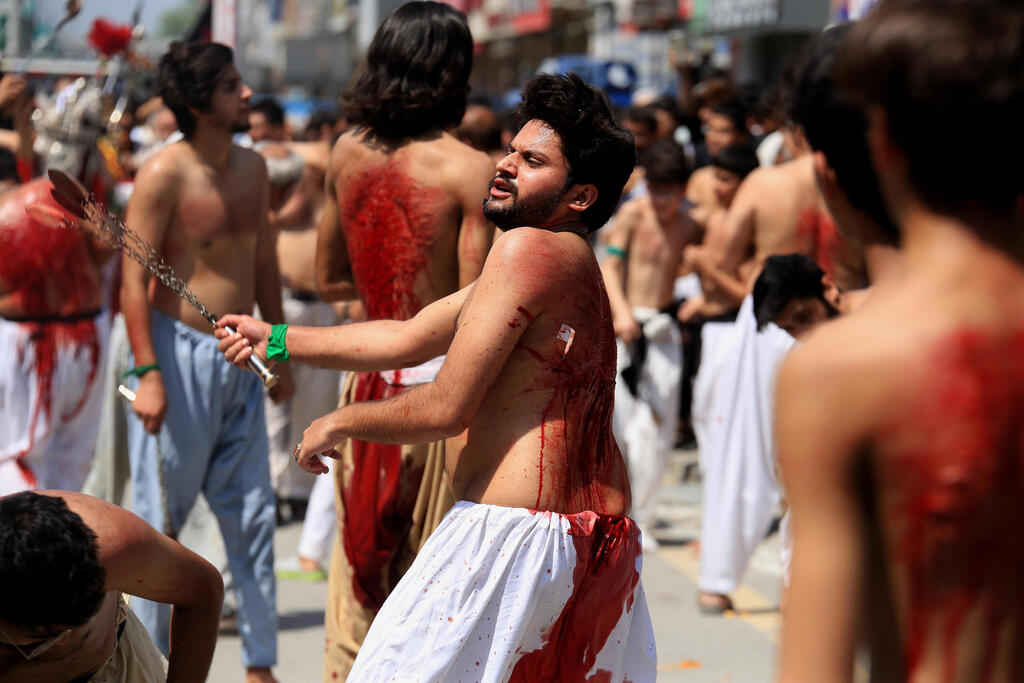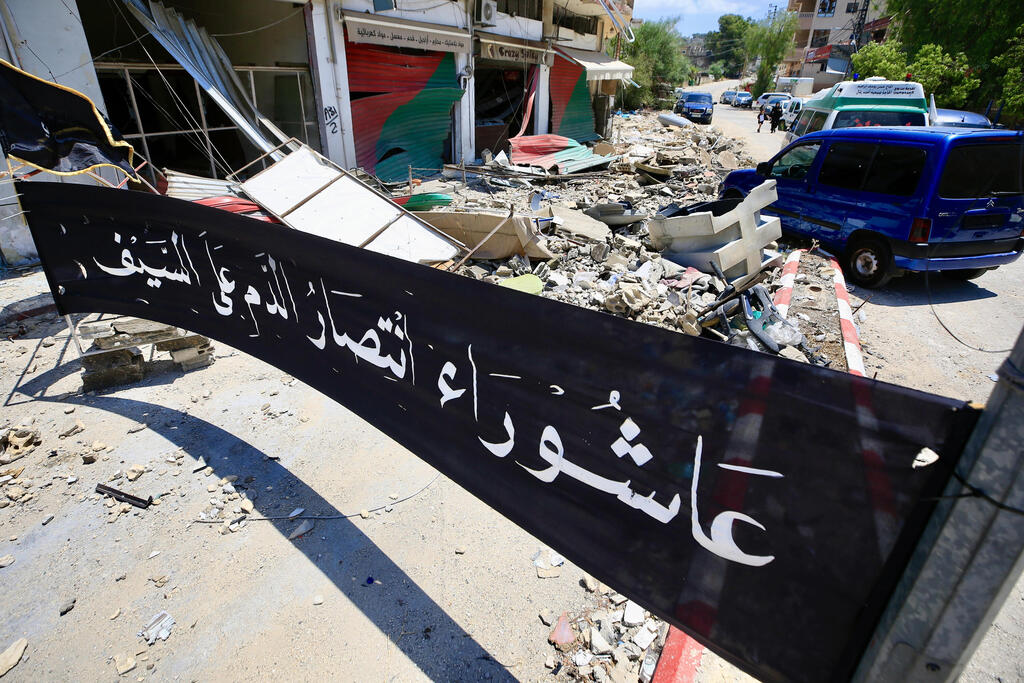Getting your Trinity Audio player ready...
The tenth day of Muharram, one of Islam's holiest months, is known as Ashura, commemorated by all Muslims to recognize the martyrdom of Hazrat Imam Hussain, the grandson of Prophet Muhammad, the last Messenger, which occurred in 680 AD according to the Gregorian calendar. This year the Ashura began on the evening of July 16.
Shiites across the Muslim world on Tuesday evening began observing Ashura, a day of mourning during which they traditionally beat themselves until they bleed. From Afghanistan to Turkey, from Lebanon to Iran, millions of Muslims took to the streets and held mourning processions remembering the murder of Hussein ibn Ali, the grandson of the Prophet Muhammad.
4 View gallery


Ashura ceremony in Iran
(Photo: Reuters/ Majid Asgaripour / WANA (West Asia News Agency) via REUTERS)
At that time, Hussein, the youngest son of the fourth Caliph Ali and grandson of Muhammad, emerged to claim leadership of the Muslim empire, widely supported by Shi'ites. However, Yazid ibn Mu'awiya's army massacred him along with dozens of his family members.
Centuries later, Shi'ites worldwide still observe Ashura Day with self-beatings using chains, knives and other acts of penance. The major ceremonies were held in Tehran, Iran and Kerbala in Iraq, the centers of Shiite Islam. Imam Hussein is buried in a shrine adorned with a golden dome in Kerbala and Iranian state television broadcast live from there.
Hezbollah's Secretary-General Hassan Nasrallah announced on Monday that, due to the war, traditional Ashura processions would not take place this year in southern Lebanon near the border with Israel. However, small symbolic ceremonies were held in the south amid the ruined houses damaged by IDF bombings.
About 10% of the 1.8 billion Muslims in the world are Shiites, who to this day see Imam Hussein as the rightful heir of the Prophet Muhammad. His death in Karbala at the hands of the Sunnis is a clear symbol of the divide between Sunnis and Shiites and remains a significant part of Shiite identity to this day.




